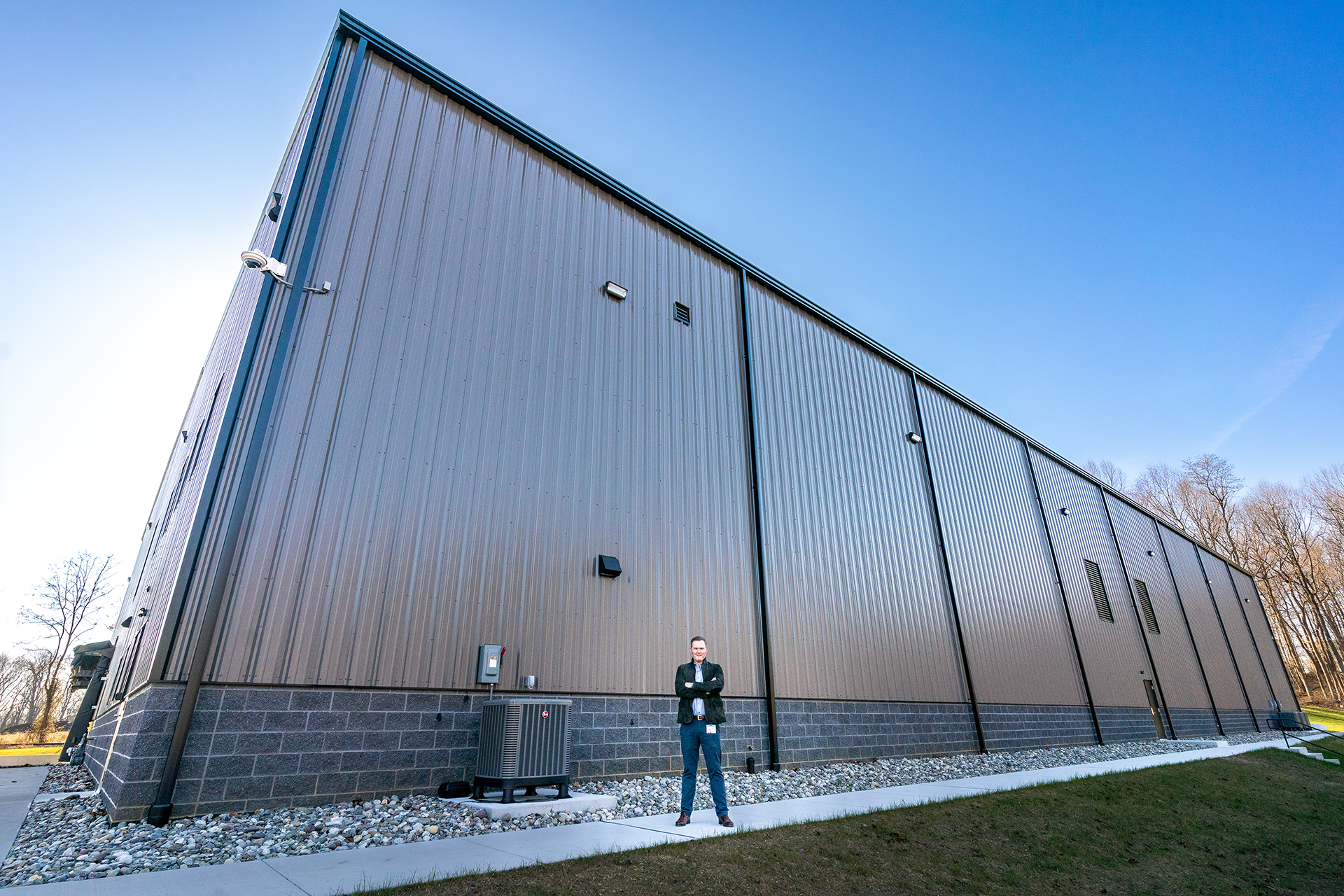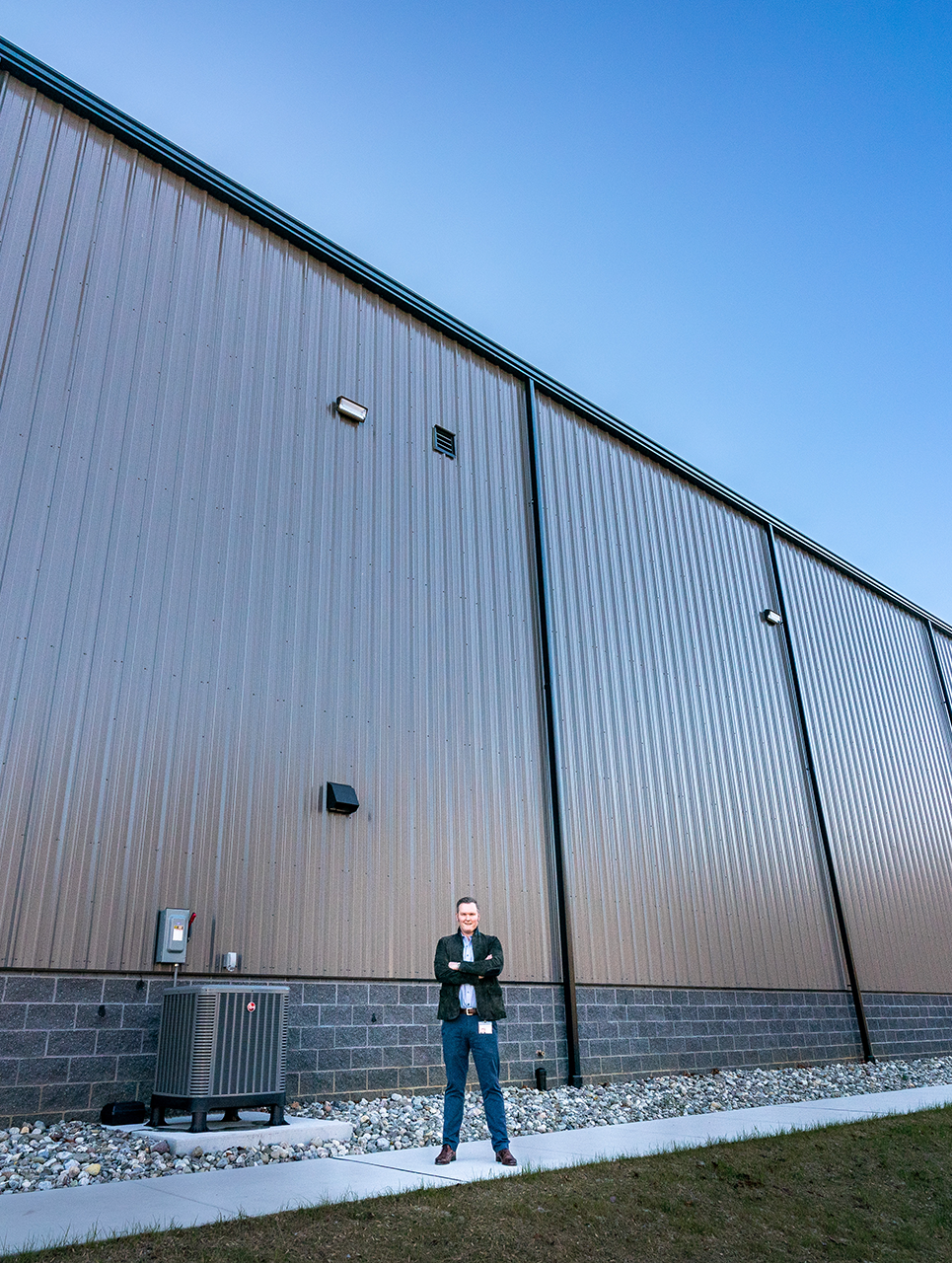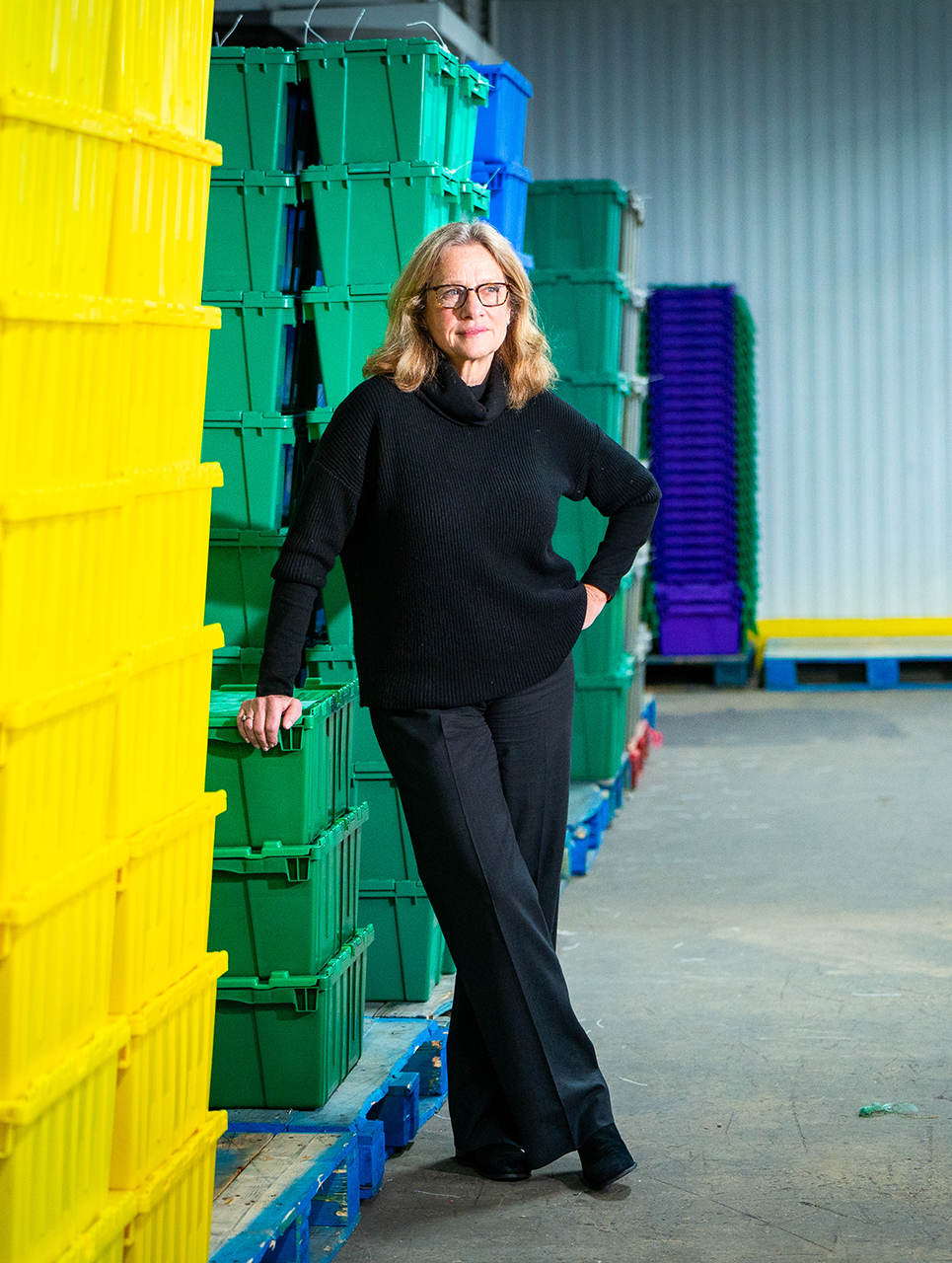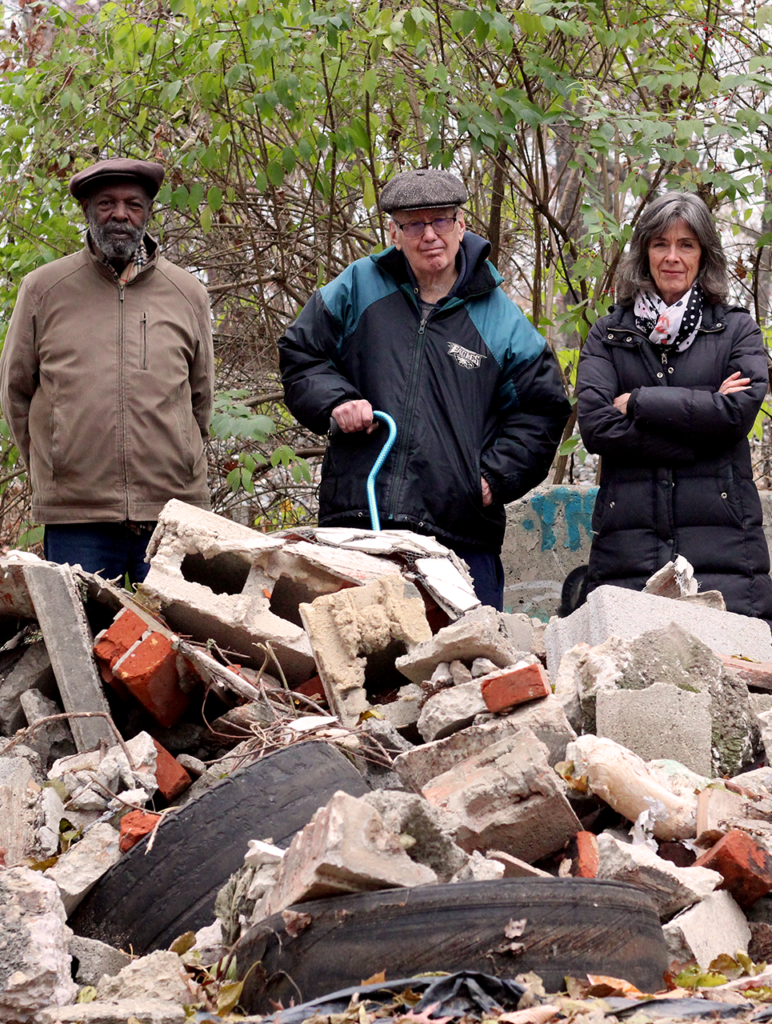The amount of electronic waste the U.S. produces — 6.9 million tons annually — is an overwhelming problem, but for Steve Figgatt, founder of the e-waste recycling business Sycamore International, it’s also a nearly limitless opportunity.
Thirteen years ago Figgatt, 36, started the West Grove-based business — which now employs 73 people and processes 40,000 devices per month in 60,000 square feet of warehouse space — after graduating from Ithaca College in 2008.
At Ithaca, Figgatt majored in environmental studies, focusing on wind and solar development. When he launched his business, he turned his attention to keeping computers functional and out of the landfill.
“When you start a new enterprise, you think, ‘Hey, what sucks about this thing?’” Figgatt says. “And if you have a solution, you solve it. And then rinse, repeat and scale.”
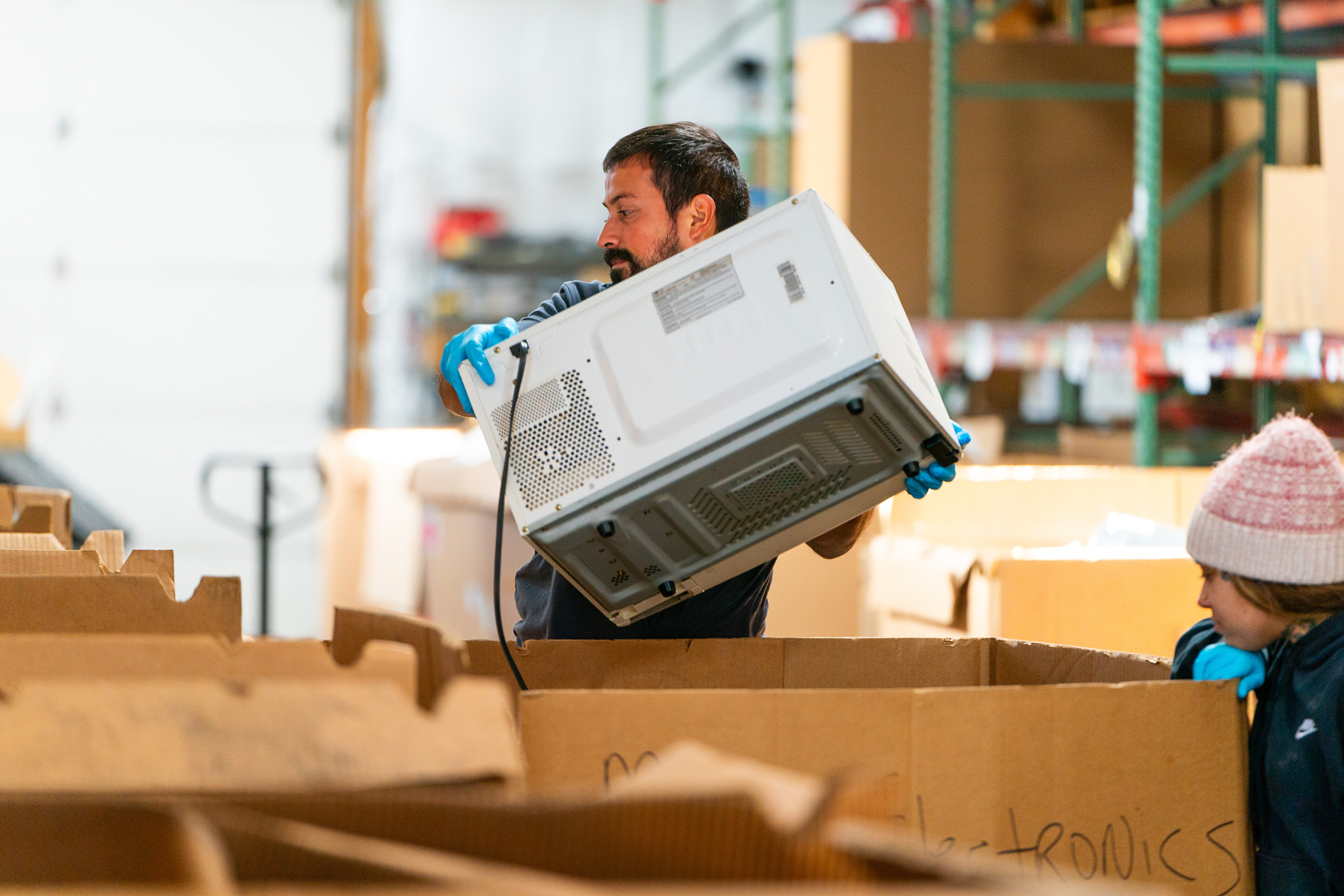
It took Figgatt a few iterations of his business before he found his niche. For several years, the company repaired broken computers for local school districts, but he eventually concluded he was bound to be outcompeted.
Meanwhile, he had been working with the Chester County Intermediate Unit, which serves as a liaison between public, private and charter schools and the Pennsylvania Department of Education, where he was working on school computer upgrades. Figgatt was tasked with getting rid of their old electronics, and was appalled at the companies he had to deal with. “It was just a terrible customer experience,” says Figgatt. “They were destroying assets … and I figured we could extract more value out of these assets.”
Why not mine or source your raw materials from assets that are already in the material stream, rather than doing mountaintop removal to mine iron ore … ”
— Steve Figgatt, founder of Sycamore International
Electronics recycling is a gold mine — as well as a mine for silver, nickel, platinum, iron and palladium, to name just a few of the rare earth metals in the average laptop — but a complicated one to monetize. The careless destruction of the computers led Figgatt to begin investigating the supply chains to try to make it work. It also aligned with his guiding business philosophy, which predates but embodies the circular economy movement.
Figgatt says, “Why not mine or source your raw materials from assets that are already in the material stream, rather than doing mountaintop removal to mine iron ore, for example, which is an incredibly costly process, energy-wise, materials-wise, labor-wise. Why not just use it out of an existing waste stream?”
Figgatt estimates that, after the computers are pried apart and their parts are sorted, Sycamore sends materials to between 72 and 74 downstream recyclers, and he vets each one of them to ensure the materials are handled properly.
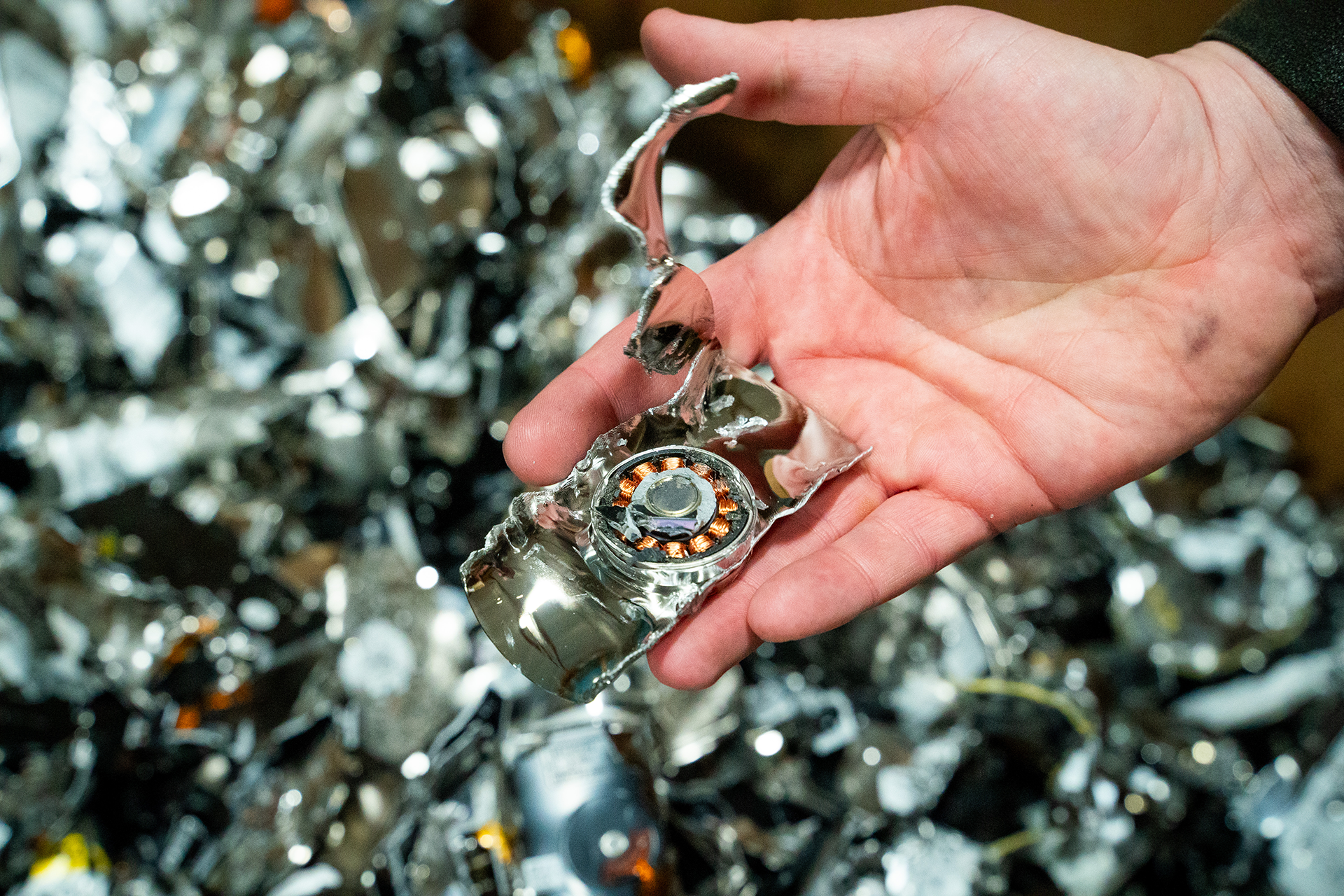
“There’s a lot of bad actors that have been in this industry,” Figgatt says, some of which export waste to developing countries. There, he explains, “people just pour gasoline on TVs … and just light it on fire because it’s an easier way to burn off the plastic so they can collect the metal.” The results are poisoned air and hazardous waste sites.
Recycling is not the only end game for computers. In fact, it’s the second and less desirable outcome. The first and more profitable option is refurbishing. According to Figgatt, selling refurbished computers accounts for 82% of the company’s revenue. He says that Sycamore’s sales are currently split 50-50 between domestic and international markets.
Figgatt says, “We’re actually working on [an order] this morning where we’re shipping a bunch of tested refurbished televisions that we pulled out of the school system regionally and it’s being distributed to a customer in Casablanca.”
Sycamore has contracts with school districts and colleges and universities — as well as some medical institutions — in Pennsylvania, New Jersey, Delaware and other Mid-Atlantic states to purchase computers they are replacing. Sycamore sends a truck to pick up the unwanted computers, and brings them back to their 16-acre campus.
Then, the sorting begins.
If the laptop is suitable for resale, it must be cleaned both physically and digitally. The physical part is pretty straightforward. Employees use razor blades and rubbing alcohol to remove stickers previous owners had used to decorate them.
The digital scrubbing is a more time and energy intensive process, requiring up to a day to complete. To adhere to information technology asset disposition standards, this process must not be interrupted, and if it is, the process must start over.
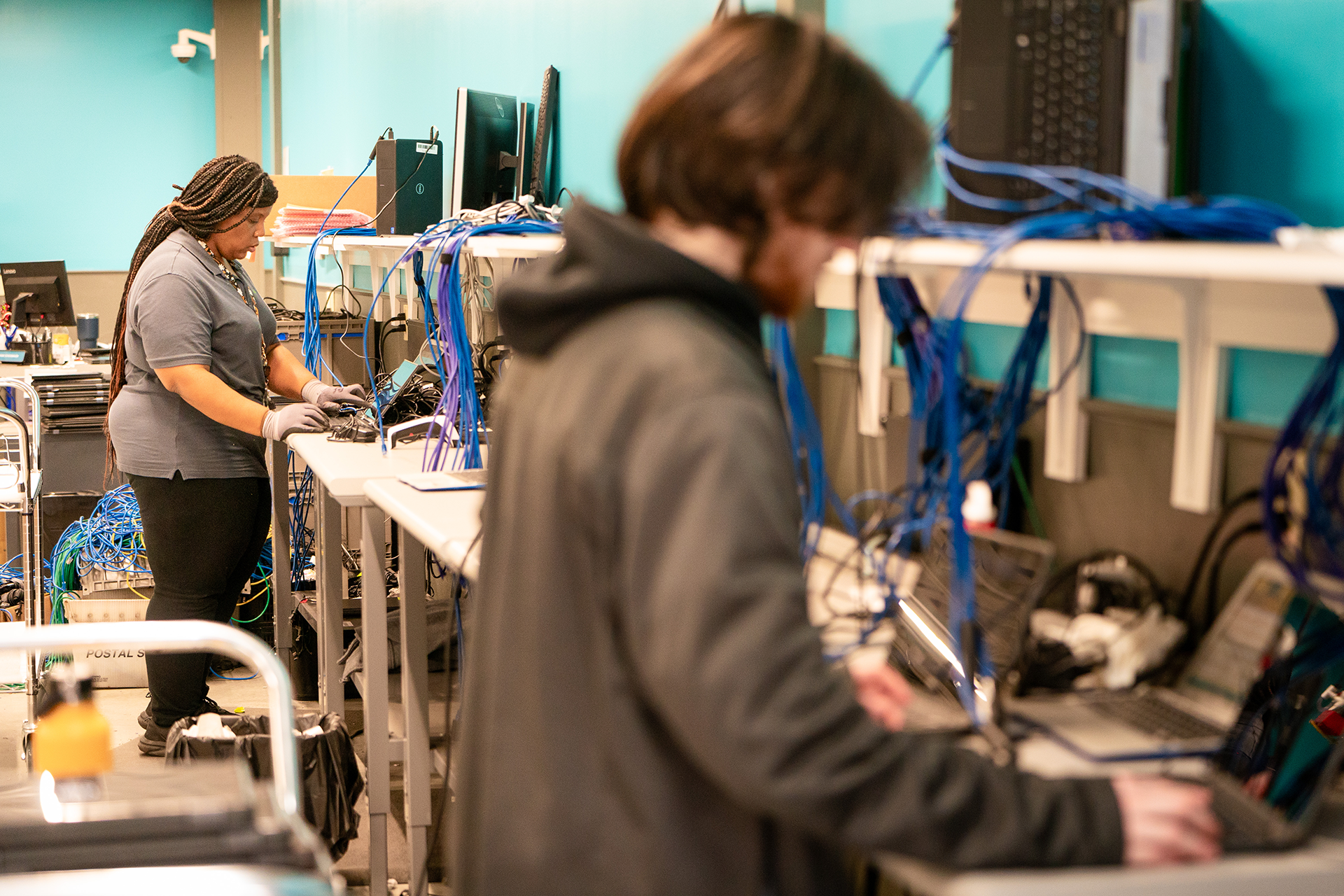
This vulnerability to a power outage, along with his goal of creating a zero-waste, net-zero company, prompted Figgatt to have a microgrid built for this campus. That means if the power goes down for everyone else, Sycamore remains powered.
As impressive as the recycling and refurbishing business is, how Sycamore powers its operation has at least as much, if not more, potential as a business. The energy is derived entirely from rooftop solar panels, and it is stored in an iron flow battery, the first of its kind on the East Coast.
The battery most familiar to us is the lithium-ion used in cell phones, electric cars and countless other rechargeable household electronics. A major advantage of lithium batteries is that they are energy dense and, therefore, compact. The disadvantage is that lithium degrades over time.
Iron flow batteries have the opposite traits. Iron flow batteries are huge; the one Sycamore uses, which is manufactured by Portland, OR-based ESS, Inc., is housed in a 40 foot-long shipping container and weighs 40 tons.
However, it does not degrade with time, and Sycamore’s system is guaranteed for 25 years, though it should continue to run beyond that.
“You’d have to have two and a half lithium batteries for every one of these,” says Figgatt.
The materials for the technology, salt water and iron, are also plentiful. It’s a closed loop system, so the same water continues to course through the tubes indefinitely. Should the unit ever be decommissioned, it’s a simple matter to neutralize the water, so there’s little environmental risk.
Sycamore is working on the installation of a second battery to increase their capacity.
When you think about it through an ecological lens, everything in the natural world is reused in some way or other … It just makes sense.”
— Steve Figgatt, founder of Sycamore International
It’s easy to see why Figgatt is so bullish in business: there is such a tremendous amount of waste, or, as he sees it, undervalued assets. He’s excited to begin processing solar panels, another hard-to-recycle item that is just beginning to become a major waste issue.
He sees the solutions that his company is creating to these vexing problems of waste and energy as appealing to both sides of the political aisle.
Democrats already embrace recycling and green energy, while Republicans see an opportunity to reclaim rare earth metals — the mining of which is, by some estimates, 90% controlled by the Chinese government.
As Figgatt sees it, the underlying philosophy of the business transcends all political labels and divisions. He says, “When you think about it through an ecological lens, everything in the natural world is reused in some way or other, carbon cycles originally, and everything else. It just makes sense.”
